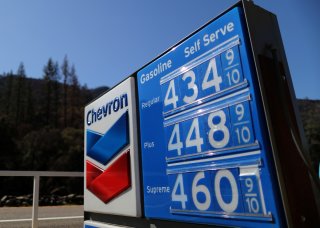Gas Prices Are at Highest Point Since 2014: When Will They Head Back to Normal?
The Colonial Pipeline hack that shut off the major gasoline pipeline to the Southeast has caused the national average of fuel prices to surpass $3 per gallon for the first time in seven years.
The Colonial Pipeline hack that shut off the major gasoline pipeline to the Southeast has caused the national average of fuel prices to surpass $3 per gallon for the first time in seven years.
Motoring organization, Automobile Association of America, reported that the nation’s average retail price is now at $3.008 per gallon. The pipeline’s shutdown triggered a panic-buying surge that’s emptied gas stations across the Southeast, prompting the price of gas to jump.
“We've already seen higher gas prices,” Tiffany Wright, a spokeswoman for AAA in the Carolinas, said on Tuesday.
“They have gone up as high from anywhere from 3 to 10 cents overnight,” she added.
That’s the record price for gas since November 2014, as the 5,500-mile pipeline carries more than 100 million gallons of gas from Texas to New Jersey each day.
The Colonial Pipeline reported that it restarted operations at around 5 p.m. ET on Wednesday after experiencing a five-day shutdown. The company warned, however, that it would take “several days” for behavior to be back to normal.
“Following this restart it will take several days for the product delivery supply chain to return to normal,” Colonial said in a statement. “Some markets served by Colonial Pipeline may experience, or continue to experience, intermittent service interruptions during the start-up period. Colonial will move as much gasoline, diesel, and jet fuel as is safely possible and will continue to do so until markets return to normal,” the company added.
But lawmakers on Capitol Hill will still likely seize on the gas price hike to tackle the energy policy debate, especially as Democrats and the Biden administration move to pass a multi-trillion-dollar infrastructure bill that includes pandemic and financial assistance initiatives like free community college and child care aid.
Republicans argue that the infrastructure package should be more targeted toward traditional and physical infrastructure.
Prior to Colonial’s announcement about restarting operations, President Joe Biden said to expect “good news” in the next 24 hours, noting that the White House has been in “close contact” with the pipeline.
“We have been in very, very close contact with Colonial Pipeline, which is the one area you’re talking about—one of the reasons gasoline prices are going up,” Biden said Wednesday afternoon.
He added, “I think you’re going to hear some good news in next 24 hours. And I think we’ll be getting that under control.”
The White House has also encouraged consumers to only get gas if they need it.
Several states across the Southeast have experienced gas shortages due to the shutdown, including North Carolina, South Carolina, Georgia, Virginia and Florida.
The governors in Florida, North Carolina, Georgia and Virginia have declared states of emergency as of Wednesday due to the fuel shortages, and have moved to ease gas transportation guidance. Virginia Gov. Ralph Northam (D) issued an executive order enabling state agencies to pump out their own gas transport waivers and offering boosted funding for the state and local government over the low gas supply. North Carolina Gov. Roy Cooper (D) also cut gas regulations to swiftly get gas to the stations.
Experts have also indicated that gas prices have been increasing over the last few weeks, as consumers turn to driving as the means of transportation during the summer months.
Rachel Bucchino is a reporter at the National Interest. Her work has appeared in The Washington Post, U.S. News & World Report and The Hill.

